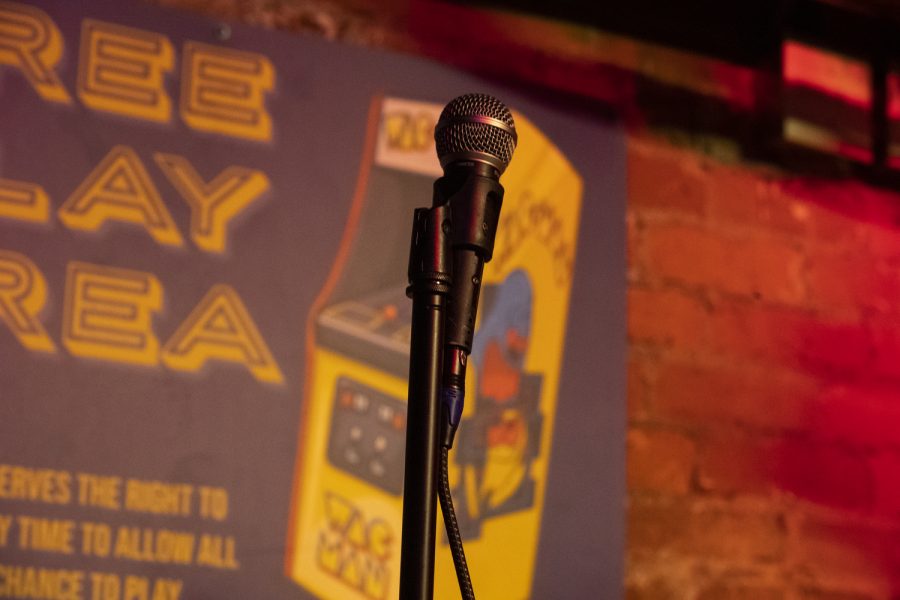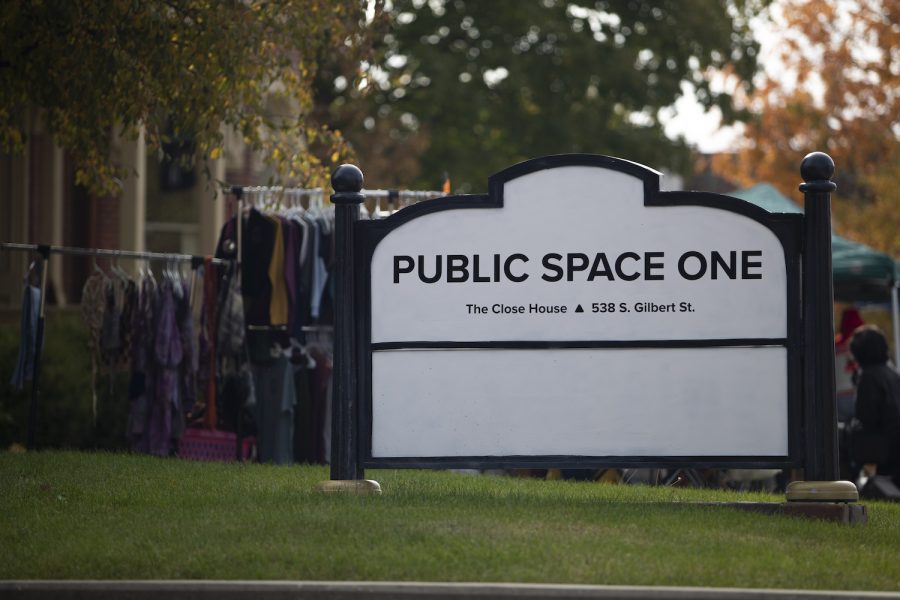Erika Brown is the cohost of Talk Art, a weekly gathering at the Mill, 120 E. Burlington St., in which many enjoy readings by those in the Writers’ Workshop. We spoke with her to find out more about Talk Art.
The Daily Iowan: What’s Talk Art all about? Don’t you guys at the Writers’ Workshop have enough glory already? Why a reading series at all?
Brown: I played a lot of music, particularly hip-hop, in our creative-writing studio because the roots are the same. Lyrics, as in the words to a song, and lyrical poetry are etymologically related to the Greek for “singing to the lyre.” Which is all a fancy way to say that writing lives a double life, one on the page and one in your ears. Both send vital signals to your brain. The words better sound good and melodious. A reading series is a way for a writer to test her or his flow and that the sounds stick like a burr in your headspace.
The same is, of course, true for fiction writers. They can also test that their dialogue sounds believable, for example. And if believability is not a priority for them, writers can gauge where the work is funny, where it’s befuddling, where it’s particularly moving, from the audience reaction.
Plus, despite our big-time reputation, many writers have small-time self-confidence. Many have never performed in public before, so it’s a good opportunity to practice in front of a supportive crowd.
DI: Can you describe in detail your duties as cohost of Talk Art?
Brown: My responsibilities, outside of the actual performance, are to select delightful raffle prizes. My cohost, Michael Fauver, as talented a writer and as delightful a human being as they come, laid the foundations this summer by booking our dates at the Mill and the Sanctuary. We negotiate conflicts. Occasionally, we arm-wrestle, then eat duck. We do some amount of publicity before the events, like an e-mail to the listserv and some posters at the Dey House.
Night of, we greet people at the door and garner raffle money. A lot of the heavy lifting is accomplished by the readers, of course, and particularly, their introducers. Each featured writer selects someone to introduce the writer as a person and a writer. These intimate, clever prologues often turn into elaborate roasts. They’ve included homemade videos, re-enactments from David Lynch ,movies and bonbons with pop rocks.
DI: What are some of the topics and themes that range in an average Talk Art session?
Brown: As many as fit into literature. Sex, drugs, bebop.
DI: Any crazy TA moments or memorable stories you can recall?
Brown: Mike and I inherited the reading series from two strapping young lads with wonderful jaw lines. We were nervous, but it’s taken on its own flavor this year with contributions from the Workshop.
BJ Love read some poetry while wearing a bear head. Ossian Foley, suffering from gout and a sore throat, did a Stephen Hawking-type thing by programming his computer to read for him. Rawaan Alkhatib, a gifted illustrator, poet, and gourmand, handcrafted truffles with pop-rocks in them to coordinate with her reading. It was also really awesome when John Ashbery came and crowned Danny Poppick.
DI: Who do you feel are some of the up-and-coming young writers in the Workshop?
Brown: Gee, this really isn’t a fair question. As a cohost, I say no comment; we’re all equally talented.
DI: What do you crazy writers do after a rambunctious evening of Talk Art?
Brown: We sneak away to a secret location on the North Side, where we listen to Joy Division and Miles Davis, vertically paw at each other, and create more fodder for writing. Some people probably go home and write. But, if a budding writer were inclined to ask a question, most writers stick around the venue for a bit and are receptive to starting a convo.
DI: Why should we hard-working and goal-achieving students take a break from our precious studying to check out Talk Art?
Brown: Iowa City was declared by UNESCO to be a City of Literature, with the Writers’ Workshop as its heart. Some of the greatest writers have been educated and processed here, like Kurt Vonnegut, Sandra Cisneros, James Tate, Louise Gluck, Philip Roth, Flannery O’Connor, and John Irving. They totally loved Talk Art. Invest some time now, and you’ll be telling your children about it later.
If that’s not distinguished sounding enough, Talk Art is plumb fun. Some readings are like good standup comedy, if the work is fast-paced and, energetic, and deploys humor. Sometimes, it’s like being read a fairy tale, with fully imagined universes and unpredictable plots. They’re rarely boring. And if one’s not to your taste, you, as a audience member, can exercise critical thinking about why not. Then write something better and become famous. Basically, it’s your chance for glory.






